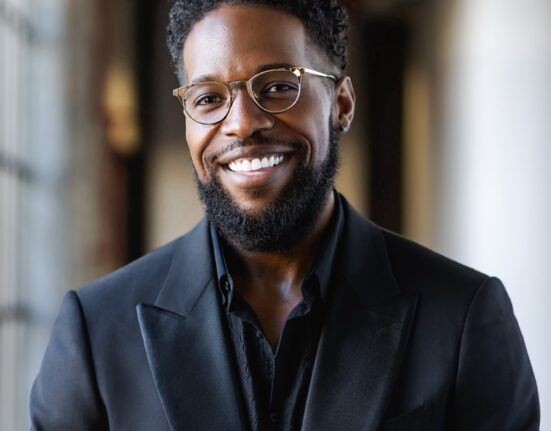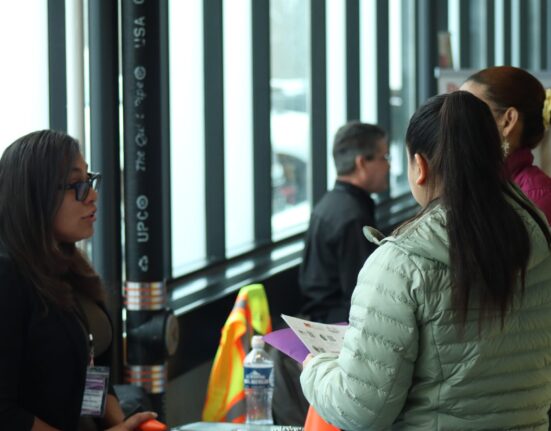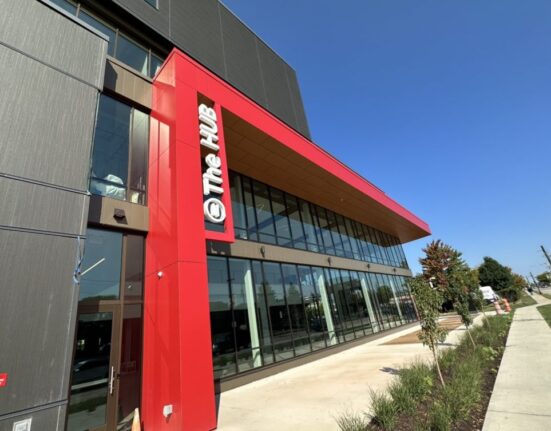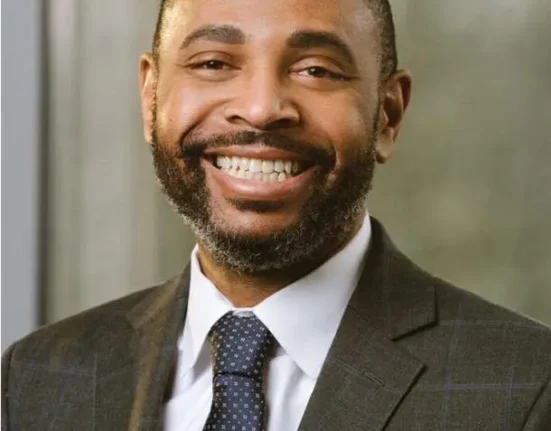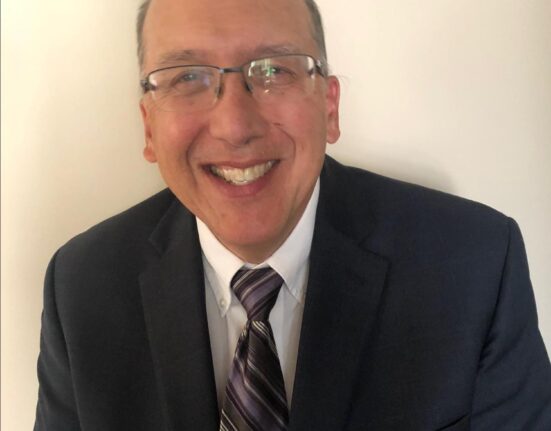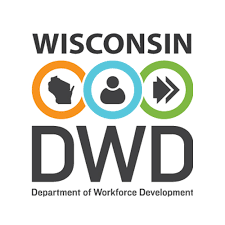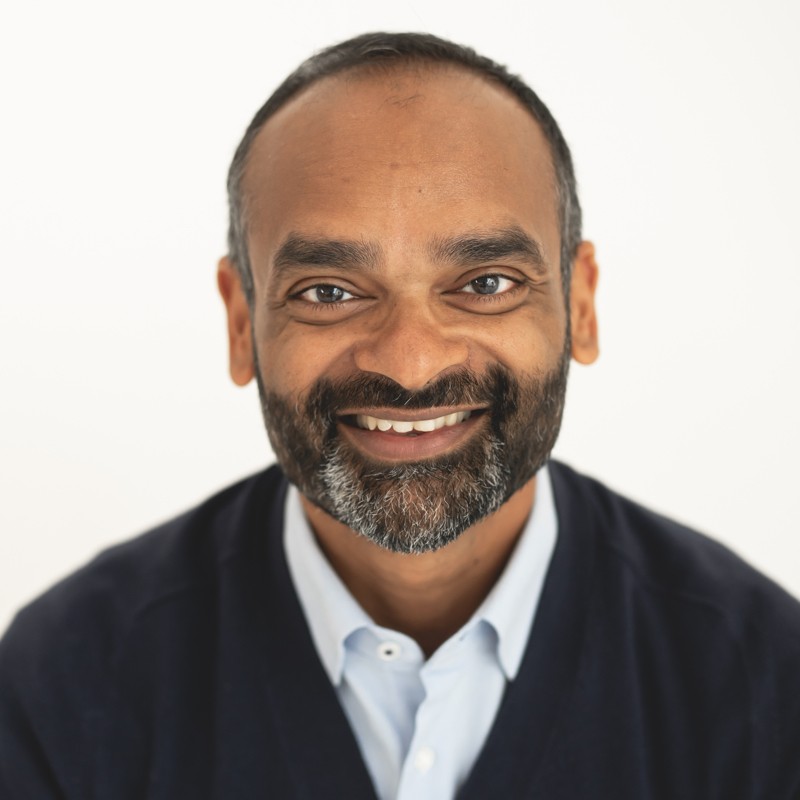
Dr. Jay Balachandran grew up as a small-town kid, the son of an engineering professor at UW-Platteville. Even with fewer than 10,000 people in the 1980s and 90s when he was growing up there, Platteville is one of the largest cities in very rural southwest Wisconsin.
“In a lot of ways – and this is true of a lot of my friends of color in Wisconsin who grew up as immigrant kids – I have more of an affinity with small town Wisconsin than I do with India, which is where my family’s from,” Balachandra said in a recent interview. “Definitely growing up in the grade school system, you had your kids who were third and fourth generation Plattevillians, farmers’ kids who are just decidedly blue collar, who are some of my best friends to this day. And then you had kids of immigrants who were there to be professors … I’ve reflected on this a lot. I think it’s actually remarkable how harmonious it was. People really got along pretty well. There was surprisingly little tension that way.”
Balachandran – known more widely as “Dr. Jay” – was recognized as one of Madison365’s Most Influential Asian American Leaders in 2022.
“Get a real job”
As a student at the UW-Madison School of Medicine, Balachandran was looking to take the next step in a medical career sooner rather than later.
“When I was in medical school, I actually really wanted to be a surgeon,” he said. “But I couldn’t stomach the idea of being in training for five years after medical school.”
He ended up doing eight.
During a three-year residency in internal medicine at Northwestern, he got very interested in intensive care medicine (he appreciated the “satisfaction that comes with dealing with that intensity, and emotional intensity for families,” he said) and did a three-year fellowship in critical care and pulmonology at Harvard.
Then, another year in a sleep medicine fellowship at the University of Chicago.
“It just struck me that how we sleep and why we sleep remains one of these questions about human biology that we really don’t know yet,” he said. “It’s just sort of surprising that in the 21st century, we’re still trying to sort out why exactly this thing we spend a third of our lives doing happens. It’s just fundamentally an area of interest and opportunity for the whole field of medicine.”
After all that, it was time to settle down.
“My wife was like, ‘No mas, no more, you must get a real job,’” he said with a laugh.
For the last 12 years, he’s practiced as a pulmonologist – lung doctor – and sleep doctor, helping address issues ranging from sleep apnea to insomnia.
He said we’ve “culturally accepted a state of chronic sleep deprivation,” which wouldn’t be that hard to fix.
“We know intuitively what we should be doing,” he said. “We know we should be getting into bed when we’re sleepy. We know we should be waking up well rested. But I think technology and culture has sort of just taught us that it’s okay to stay up later, whether it’s on your phone or working or otherwise.”
He said people would be healthier generally if they got as much sleep as they need, but, “that’s different for everybody,” he said. “I think a lot of folks get really fixated on the magic eight hours of sleep. And that’s sort of a misnomer. We’re not all the same. There are some people, blessedly, who can get by with seven hours. And there are, unfortunately, those who need nine or more hours to feel refreshed.”
In addition to practicing as Chair of Specialty Medicine at Ascension Columbia St. Mary’s and co-director of Ascension Wisconsin’s sleep clinic, Balachandran is also on the advisory board for the Wisconsin Asthma Coalition and the state leadership board for the Wisconsin Lung Association.
“An itch I didn’t know I had”
Early in the COVID-19 pandemic, Balachandran – like many healthcare providers – became trusted sources of important information.
“COVID and lungs go hand in hand, so I was sort of knee deep in it from a professional standpoint,” he said.
The local school district asked him to help develop guidelines to keep kids safe.
“It translated into something that immediately benefited my (daughters), my neighbors,” he said. “The light bulb went on. I can take something that I’m interested in and passionate (about), and then turn it into something that’s good for my community.”
Two months later, the entire country was facing another reckoning after the murder of George Floyd. Balachandran and his wife felt the need to bring people together. At first, it was a backyard gathering with other South Asian families, discussing how they could be better allies for the Black community.
“Immigration policy in the United States largely followed the civil rights movement,” he said. “The ability of many of our parents and colleagues to even be in this country is thanks to the Black civil rights movement. There’s just a lot of interrelationship that I think goes unappreciated.”
Those conversations were fruitful, and authentic, and led to more.
“It was a phenomenally eye opening experience. We got such positive feedback … the following summer, (we hosted) weekly neighborhood get-togethers on our front lawn. The goal was to bring not just South Asians, but all of our neighbors together. The need stems from needing to build community, the idea that we can have difficult conversations with sensitivity, once we feel like we see each other as neighbors and not just identities on a sheet of paper.”
And the momentum continued, culminating in two community-wide conversations bringing people together from all over the village of Whitefish Bay.
“This started off as a series of after dinner dining table talks with my wife, and in a year and change, we had engaged the entire community,” he said. Between that and getting involved in the COVID guidelines, it just scratched an itch I didn’t know I had. Through happenstance I came to find out that a village board seat was open and threw my hat in. And here I am.”
“It’s been immensely gratifying,” he said of his first year on the village board. Still, it’s required an adjustment in his thinking.
“As an intensive care doctor, I’m used to making a decision and seeing a result in 10 minutes. Politics does not work that way,” he said. “You have a year’s worth of conversations, and maybe in five years, you’ll see some fruits of your labor. That’s been a good lesson for me of learning to think on a different timescale and appreciate the process.”
He said one of his top priorities is to keep the villages almost-15,000 residents more informed.
“I’m passionate about communication. And I think that our village has some traditional means of reaching out to our community, and I’m working with the village to update those. There’s a community magazine that we’re in the process of developing, which would be a novelty, to have a magazine that was developed by the community and for the community that will allow residents to learn more about each other,” he said.
Economic development is another priority in the Milwaukee suburb, he said.
“We have a Main Street that’s sleepy,” Balachandran said. “I think a lot of residents would agree we want to see more amenities that are walkable, like restaurants and family-friendly activities and date-night type destinations that we just lack right now. But I think a lot of residents don’t appreciate that you need to build some density of population to support those endeavors.”
And to create that density of population? Housing.
“Part and parcel with economic development is housing density. There’s an extreme lack of housing availability everywhere on the North Shore, but particularly in Whitefish Bay,” Balachandran said. “It’s a highly desirable community, but there just aren’t enough available units and the prices are going up. Our school district enrollment is slowly decreasing. We need to be aware of that. And (improved housing density) doesn’t come in the form of building McMansions. It comes in the form of attracting young families who can bring their kids to school here and help grow our community.”
Asked whether his year in elected office has inspired him to think bigger, Balachandran demurred.
“I’m really content to help make Whitefish Bay better,” he said. “I’m rolling up my sleeves, and I’m here for the long haul.”

